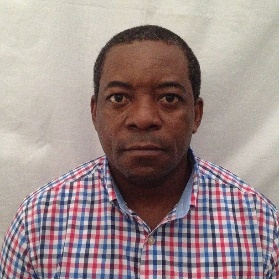Health Policy Committee
The Health Policy Committee would like to update you on a few things regarding trauma and healthcare policy.
The Health Policy Committee will present a mini-Symposium “Concurrent Surgery, HCAPHS, and Level II Trauma Center Proliferation--- "The Good, the Bad and the Ugly" on 19 October 2018 at the Annual Meeting. This should be a very interesting and entertaining symposium that will give you plenty of good information. We look forward to seeing you at the Symposium!
The Health Policy Committee also works on Position Statements and White Papers regarding issues associated with legislative and agency efforts that affect our ability to effectively care for our patients. In terms of the impact of defining value in trauma care, the committee endorses the following:
- Death and disability secondary to injury is a significant problem both in the US and throughout the globe.
- Focusing the care of the injured in well positioned, verified trauma centers will greatly improve clinical outcomes in injured patients.
- Funding research in the care of injured patients is of extremely high-value to society, and the OTA and other organizations should lobby Congress to increase funding for research.
- There is public value in developing Performance Measures specific to the care of trauma patients, and CMS should enable the OTA and other organizations to develop these measures.
Lastly, this is a very divided time in our country in terms of politics and governmental leadership. For instance, the gubernatorial race here is Georgia has sharply divided the voting populace. In November, we will decide between a liberal African-American woman who has served as the Minority Leader in the state legislature for the past six years and a conservative Caucasian man who served as Georgia’s Secretary of State for the past eight years. Both are accomplished candidates who have qualities that are attractive to us as surgeons. Both are running nasty campaigns that disparage the other. The point is that like the general population, the orthopaedic community is diametrically opposed in whom they support in this race.
There is plenty of room for all of us at the table, and we as orthopaedic trauma surgeons must rise above this inevitable mess. I have encouraged my partners and friends to strongly support whomever they prefer, but please try to be respectful of those who differ in opinion. Regardless of the outcome of the election, the OTA Health Policy Committee will continue to advocate for the better care of injured patients.
Public Relations Committee
Based on the previous run of the OTA/AAOS Opioid Safety Ad and abuse being a nationwide epidemic, to further highlight the potential dangers of opioids, the AAOS and the OTA created and will re-run the public service campaign via radio ads, urging doctors and patients to exercise caution in prescribing and taking opioids.
The print campaign carries the message: "Painkillers are easy to get into. Hard to escape."
The 30- and 60-second radio ads emphasizes the importance of moderation in prescribing opioids. The radio ads feature a patient asking for additional prescription painkillers to combat knee pain. Her orthopaedic surgeon responds: "We're being very careful with prescription painkillers. Let's continue with therapy and off-the-shelf anti-inflammatories for now."
The campaign will once again be distributed to radio stations across the U.S. in an effort to attract attention and awareness for this epidemic.
“Having open lines of communication between surgeon and patient regarding the use of prescription opioid or narcotic pain medications has never been so important,” said former OTA President Steven Olson, MD. “OTA members recognize that injuries can be painful, often requiring short term, controlled use of opioid medications. However, opioid medications are nearly always provided as one piece of the overall strategy to treat pain. Other medications such as acetaminophen and/or non-steroidal anti-inflammatory drugs, as well as other modalities such as ice, heat, and exercise are just as important.”
“It is our responsibility to education and advise our patients as to how they can manage their pain and how to properly use opioid pain medications,” said Dr. Olson. “We encourage patients to take the responsibility for carefully following these instructions to lessen the risk of harm and addiction.”
For more information, please visit: OrthoInfo, the AAOS public facing website.
Nominating Committee
Nominations will be taken at this OTA Business meeting for the 2018-2019 Nominating Committee.
This Nominating Committee, once elected, will present the OTA membership with a recommended
slate of candidates for the following positions at the March 2019 Business Meeting.
- 2nd President-Elect- (must be an Active OTA member for ten years or more)
- Member-at-Large (1 position) - (must be an Active or Research member)
- Membership Committee (2 positions)
Prepare to make a nomination. Link to listing of qualified candidates: Active & Research Members.
This meeting will be the only opportunity to nominate yourself or a colleague for this committee.
OTA voting members include Active and Research, but all OTA members are welcome to attend this meeting.
Please mark your calendar for the October OTA Business Meeting.
OTA Business Meeting
Thursday, October 18, 2018
5:07 pm – 6:07 pm
Gaylord, Osceola ABCD
Kissimmee, Florida
Humanitarian Committee
OTA would like to congratulate Billy Haonga, MD and Kisitu Kyengera, MD; the 2018 OTA Humanitarian Scholarship Award recipients!
In 2018, OTA established a new OTA Humanitarian Scholarship designed to provide orthopaedic trauma education for young surgeons from low-middle income countries.
Two scholarships were awarded at $5,000 each covering the recipients travel, room and board, attendance to the OTA Annual Meeting and the opportunity to participate in an observership at a U.S. Institution with an OTA member serving as a mentor during the visit.
Dr. Billy Haonga, An OTA Member
Head of Orthopaedic Trauma Dept. at Muhimbili Orthopaedic Institute
Dar Es Salaam, Tanzania, Africa
Observation at: IGOT/OTI/UCSF (Institute for Global Orthopaedics, Orthopaedic Trauma Institute, University of California, San Francisco)
Kisitu Kyengera, MD
Mulago Hospital
Uganda, Africa
Observation at Shock Trauma, Baltimore MD
OTA Humanitarian Scholarship
The OTA Humanitarian scholarships are merit based and will be awarded to the primary author of the selected abstracts submitted to the OTA Annual Meeting. Applicants will be ranked on the quality of their abstract as well as their potential contribution to the development of orthopaedic care in their home country. Funding will cover travel to the OTA Annual Meeting as well as a 3 to 5 day observership at a US Institution.
This scholarship is open to individuals from low to low-middle income countries only. These countries are determined by the World Bank classification of economies.
Individuals should have completed their Orthopaedic training, and should show promise as leaders, educators, and researchers.
All abstract submissions must be done through the OTA abstract submission site. Additional details for the 2019 Annual Meeting Abstract submissions will be available on the OTA website in November 2018. The OTA Humanitarian Committee will review all applicants and those chosen will be notified in 2019.
Disaster Management and Emergency Preparedness Committee
We are happy to report that the Pandemic and All Hazards Preparedness and Advancing Innovation Act of 2018 (PAHPAI) passed the House on 25 September 2018. The bill includes the MISSION ZERO Act, funded at $15 million a year, which has the potential to significantly enhance military-civilian partnerships in an effort to improve readiness.
The MISSION ZERO Act amends the Public Health Service Act to fund grants to certain trauma centers to enable military trauma care providers to provide trauma and related acute care at those trauma centers. These funds may be utilized to integrate military trauma care providers into the civlian trauma center, including expenditures for malpractice insurance, office space, information technology, specialty education and supervision, trauma programs, and state license fees. Grantees must allow the military trauma care providers to be deployed for military operations, training, or response to a mass casualty incident. PAHPAI also includes a modified version of the Good Samaritan Health Professionals Act which states that all those that are pre-registered with ESAR-VHP or are members of the Medical Reserve Corps will be treated as if they are licensed in the state the disaster occurred.


